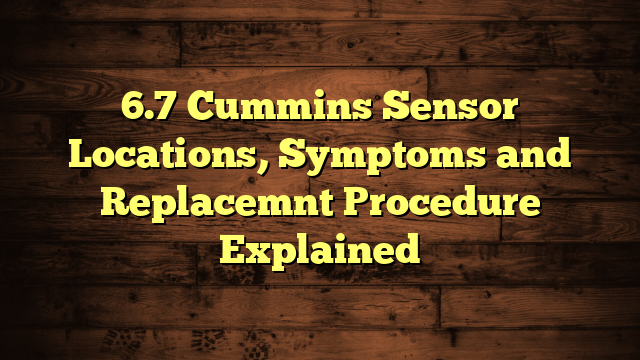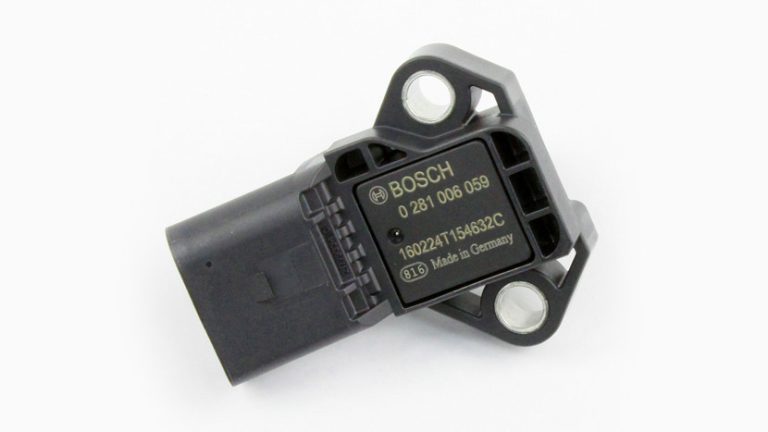Reverse Parking Sensor Not Beeping; What To Do?
Reverse parking sensors are a safety feature that helps drivers avoid collisions when backing up. However, sometimes these sensors can malfunction and stop beeping. There are a few reasons why this might happen, and it’s important to troubleshoot the problem so that you can park safely.
In this article, we will discuss the most common reasons why reverse parking sensors stop beeping, and how you can troubleshoot the problem yourself. We will also provide some tips on how to prevent reverse parking sensor problems in the future.
Table of Contents
What is a reverse parking sensor?
A reverse parking sensor is a safety device that helps drivers park their cars by emitting ultrasonic waves and detecting objects behind the car. When an object is detected, the sensor will sound a beeping noise to alert the driver.
Reverse parking sensors are typically located in the rear bumper of the car. They emit ultrasonic waves, which are sound waves that humans cannot hear. These waves bounce off of objects and return to the sensor. The sensor then calculates the distance to the object by measuring the time the waves travel to the object and back.
The sensor will sound a beeping noise that becomes more frequent as the car gets closer to the object. This helps the driver to know how close they are to the object and to avoid a collision.
Reverse parking sensors are a valuable safety feature that can help prevent accidents. They are especially helpful for drivers who have difficulty parking, such as older drivers or drivers with limited visibility.
Here are some of the benefits of reverse parking sensors:
- They can help prevent accidents by alerting drivers to objects behind their cars.
- They can make parking easier, especially for drivers who have difficulty parking.
- They can increase visibility, especially in low-light conditions.
- They can help drivers to avoid backing into objects, such as other cars, walls, or mailboxes.
If you are considering buying a new car, looking for one with reverse parking sensors is a good idea. They are a valuable safety feature that can help you to park your car more safely and easily.
Why is my reverse parking sensor not beeping?
There are a few reasons why your reverse parking sensor might not be beeping. Here are some of the most common reasons:
- The sensor is dirty or damaged. Dirt and debris can interfere with the sensor’s ability to work properly. If the sensor is damaged, it will need to be replaced.
- The sensor is not properly connected. Make sure that the sensor is properly connected to the car’s electrical system.
- The sensor is faulty. If the sensor is faulty, it will need to be replaced.
- The car’s battery is low. If the car’s battery is low, the sensor may not have enough power to work properly.
- The car’s computer is not properly programmed. If the car’s computer is not properly programmed, it may not be able to communicate with the sensor properly.
If you are not sure why your reverse parking sensor is not beeping, you should take the car to a qualified mechanic. The mechanic will be able to diagnose the problem and fix it.
Mercedes Parking Sensors Not Beeping; What to Do?
sensor guides
How to troubleshoot a reverse parking sensor?
Here are some steps on how to troubleshoot a reverse parking sensor:
- Check the sensor for dirt or damage. Dirt and debris can interfere with the sensor’s ability to work properly. If the sensor is dirty, clean it with a soft cloth. If the sensor is damaged, it will need to be replaced.
- Check the sensor connections. Make sure that the sensor is properly connected to the car’s electrical system. You can do this by inspecting the wiring and connectors. If the connections are loose or damaged, they will need to be repaired or replaced.
- Test the sensor. You can do this by using a multimeter to measure the sensor’s voltage output. If the voltage output is not within the specified range, the sensor is faulty and will need to be replaced.
- Check the car’s battery. If the battery is low, the sensor may not have enough power to work properly. Charge the battery or have it replaced.
- Check the car’s computer. If the computer is not properly programmed, it may not be able to communicate with the sensor properly. Have the computer checked and reprogrammed by a qualified mechanic.
If you have checked all of the above and the sensor is still not working, then the problem may be with the sensor itself. In this case, you will need to replace the sensor.
Here are some additional tips for troubleshooting a reverse parking sensor:
- Try reversing the car and see if the sensor beeps. If it does, then the problem is likely with the sensor connections.
- If you have a spare sensor, you can swap it with the faulty sensor to see if it fixes the problem.
- If you are uncomfortable troubleshooting the sensor, you can take the car to a qualified mechanic. They will be able to diagnose the problem and fix it.
Nissan Parking Sensor Problems: Causes, Symptoms, and Solutions
sensor guides
How to fix a reverse parking sensor?
Here are some ways to fix a reverse parking sensor:
- Clean the sensor. Dirt and debris can interfere with the sensor’s ability to work properly. If the sensor is dirty, clean it with a soft cloth.
- Check the sensor connections. Make sure that the sensor is properly connected to the car’s electrical system. You can do this by inspecting the wiring and connectors. If the connections are loose or damaged, they will need to be repaired or replaced.
- Test the sensor. You can do this by using a multimeter to measure the voltage output of the sensor. If the voltage output is not within the specified range, the sensor is faulty and will need to be replaced.
- Replace the sensor. If the sensor is faulty, it will need to be replaced. You can buy a replacement sensor from a car parts store or online.
- Have the sensor repaired by a mechanic. If you are not comfortable fixing the sensor yourself, you can take the car to a mechanic. They will be able to diagnose the problem and fix it.
Here are some additional tips for fixing a reverse parking sensor:
- If the sensor is located in the bumper, you may need to remove the bumper to access the sensor.
- Be careful not to damage the wiring when you are removing or replacing the sensor.
- If you are replacing the sensor, make sure to buy a sensor that is compatible with your car.
By following these tips, you can fix your reverse parking sensor and keep your car safe.
Here are some additional things to keep in mind when fixing a reverse parking sensor:
- Make sure that the car is in park or neutral when you are working on the sensor.
- Wear safety glasses to protect your eyes from flying debris.
- Work in a well-lit area to avoid accidents.
- If you are not comfortable fixing the sensor yourself, you can take the car to a qualified mechanic.
Conclusion
Your reverse parking sensor might not be beeping due to dirt or damage, loose or damaged connections, faulty sensor, low battery, or computer issue. You can troubleshoot the sensor yourself by checking for dirt or damage, checking the sensor connections, and testing the sensor. If you are not comfortable fixing the sensor yourself, you can take the car to a mechanic.






